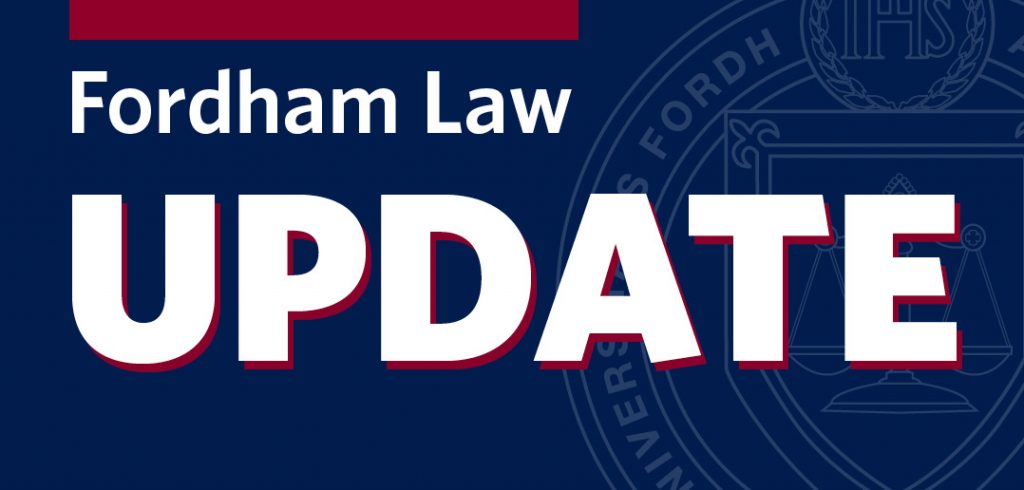A Message from Dean Matthew Diller
February 25, 2021
Dear Fordham Law Community,
As we conclude Black History Month, in which we celebrated the tremendous contributions by Black Fordham Law students, faculty, and alumni over many decades, I wanted to share with you an update on the work we are doing now to build a learning environment and legal profession that is supportive and free from bias.
Our Commitment
As you know, last June, we made a sweeping commitment to address structural racism in our own community and to combat racism in society more generally. To date, we have taken a series of concrete actions aimed at 1) increasing diversity and supporting our students, 2) making Fordham Law more welcoming and inclusive, and 3) addressing racism in the legal system and our community.
From Promise to Progress
The many steps that we have planned and implemented are detailed here, but I would like to highlight a few of the more significant actions our community has recently taken to deliver on our original promise:
- Implemented diversity training for all staff, coordinated a comprehensive diversity workshop and facilitated follow-up sessions for faculty. Additionally, we introduced anti-racism programming at our spring 1L orientation alongside other important topics that directly impact diversity, equity, and inclusion in legal education and the profession.
- Established the Deborah A. Batts Scholarship program and named our first two Batts Scholars from the Class of 2023.
- Added expert staff to provide critical support services for diverse students.
- Expanded efforts to recruit students from historically underrepresented backgrounds.
- Established a partnership with law firm Kirkland & Ellis to support the IDEAL pipeline program.
- Launched public programs and interactive Dialogue Days to expand dialogue on social justice issues in the broader community.
- Retained an expert to initiate a robust climate study focused on the impact of race and related dynamics at our institution. The study will gather crucial information from a variety of perspectives about how systemic and institutionalized racism manifests at our Law School and will inform future planning towards dismantling such systems. As a next step, a survey of the community will be conducted in mid-March.
Finally, I’m proud to note that our students have elected Tatiana Hyman ’22 as the first-ever Black editor-in-chief of the Fordham Law Review. This is a long-overdue milestone for our Law School.
These are important actions that will have a lasting impact on our institution, and I am enormously proud of the work our community is doing to effect positive change. We are experiencing a renewed sense of optimism, and while significant work remains to be done, we have begun the way forward toward building a community and a society that is racially just, equitable, and inclusive.

